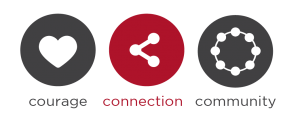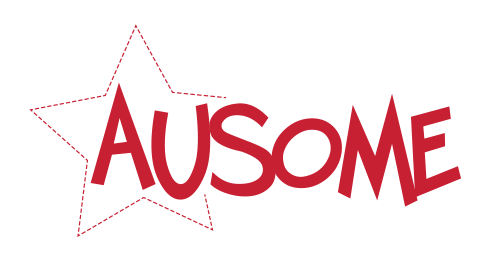A Story of Connection: Kibwézé and George
My most memorable moment with Ausome Ottawa is less of a moment and more of a journey. From my first volunteer shift to the last Glow Soccer session, working and growing with Kibwézé has been the highlight of my Ausome experience.
I’ll never forget when I first ran up to him, offered him a basketball, and asked him how he was doing… because for the first time in my life, all I got back as a response was a simple blank stare and a slight head tilt. Caught a bit off guard, I tried again. He didn’t take the ball. He didn’t reply.
The rest of the session followed a similar pattern. When I encouraged him to dribble the ball, he would just drop it and walk away. When I asked him to pass me the ball, he would throw it to the other side of the gym and then hide away in the gym corner. Rachelle and Kayla shared with me that Kibwézé liked to watch a timer when he took his breaks and that the breaks could be used to incentivize participation in other drills. They were right; it managed to get Kibwézé to make a few passes and shots, but I was convinced he could do more. There was a sparkle in his eyes, a curiosity hidden away behind his seeming “lack of interest”. I just had to figure out a way to unlock that part of him…
The next session started very similarly to the first, and before long, we were back in the gym corner. Determined to get him on the court, I would make funny faces, I would offer him high fives, and I would try to tickle him. Every now and then, I would I get a smile back from him, but nothing seemed to make him any more interested in being there or playing basketball.
I felt that my options were running out, and after our fourth break of the session, I offered him the ball feeling slightly defeated. As he reached for the ball, for no apparent reason, I pulled it away just before he grabbed it. This seemed to confuse him, but not in an unpleasant way. So I offered him the ball again, he reached for it once more, and then I pulled it back before he could take it. His eyes lit up. The challenge had been set. Without really knowing it, we had initiated a competitive game of keep-away.
Kibwézé lunged at me, grabbed my arm, and reached for the ball (it was at this moment that I realized just how strong he was). I managed to pull away, put the ball behind my back, and spin around a few times to avoid him – but he was keeping up with my every move (it was at this moment that I realized just how fast he was). He started laughing and panting as we weaved our way around the side of the gym, and finally, he managed to rip the ball from my grasp.
In excitement, he jumped around and bounced the ball a couple times. Let me repeat that: Kibwézé dribbled the ball, on his own, with no instruction or encouragement. We were making progress!
In the next session, we played keep-away as an icebreaker right when he walked into the gym. That must have gotten him in a great mood, because he was subsequently more receptive to drills and instructions than I had ever seen. Kibwézé ran around, followed the stretches, and made several perfect passes. He watched me dribble the ball between my legs, and he eagerly copied my moves. I felt a sense of trust and friendship growing between us, and as that connection grew stronger, the breaks got shorter, and the more the curious Kibwézé emerged.
Over the next few weeks, Kibwézé’s dribbling, passing, and shooting improved tremendously. Of course, I tried to reinforce his efforts as much as possible with loud cheers, fun handshakes, and exaggerated facial expressions. One time, he sank 5 buckets in a row, so I picked him up, swung him around, and hyped him up as much as I could. He really liked that, so I did it more often.
Since then, every session with Kibwézé has been a bunch of laughs, energy, and excitement. He’s a great listener, he consistently participates in drills and games, and from what I can tell, he’s having tons of fun! We start every session with keep-away, and now I know that Kibwézé, in fact, loves to play basketball, loves to play soccer, and sometimes will even shoot baskets with a soccer ball.
Looking back, being able grow and learn with Kibwézé was especially moving for me, because it meant that despite our rough start, he had chosen to trust me and was able to feel comfortable around me. It just shows that if you don’t give up on these kids, they won’t give up on you. All it takes is a few little changes in the way we act, a touch of patience and persistence, and over time, we can make a big difference in the lives of these kids.
While the volunteer’s role is typically described as “coaching and helping the kids”, Kibwézé has turned the tables by showing me another side of trust, patience, and persistence that I had previously not understood.
So thank you, Kibwézé. You are Ausome!


